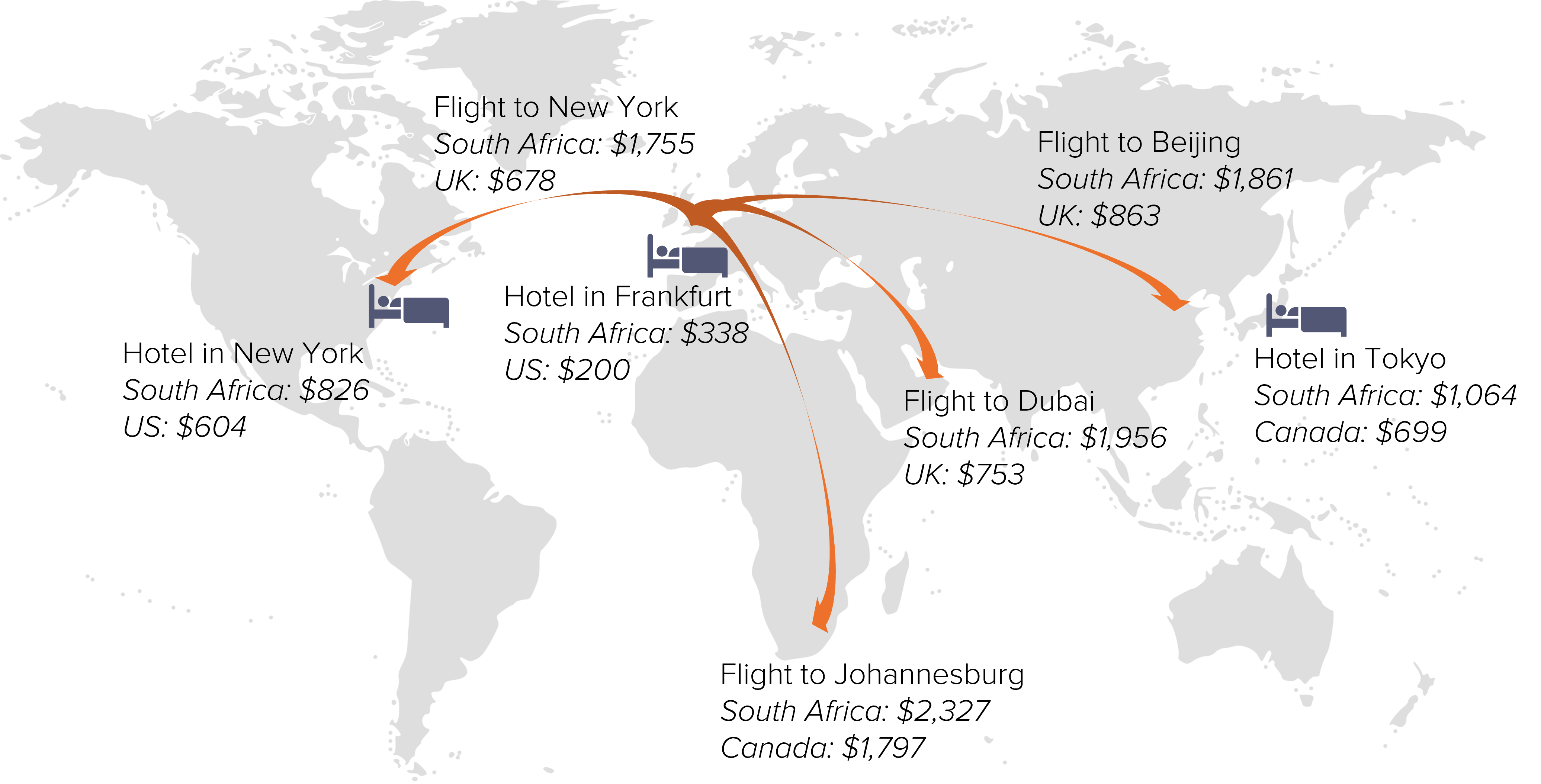Key Points
- Fideres’s investigation found that digital platforms discriminate against consumers based on the country the service is booked from – flight bookings show the largest variance in prices, with price differences of more than 150% in some cases.
- This is a global phenomenon, affecting consumers from the US to Europe, Africa and Asia, but is particularly notable within in the EU, where country-based price discrimination is prohibited.
- Fideres anticipates that antitrust, consumer unfairness and personal data litigation related to digital platforms will grow in the 2020s.
Price Discrimination in the Travel Industry
Individualized pricing is old news in this industry – most travellers are used to seeing prices for the same plane ticket go up as the date of the flight approaches, or cheap last-minute offerings for hotel rooms.1
With technology changing how customers procure travel services, new means of identifying and segregating customers to charge different prices have emerged. Discrimination in prices offered to users who are logged into an account and users who do not set one up,2 or users booking on a mobile platform instead of desktop, are also now commonplace.3
In economic terms, this phenomenon emerges because different groups of consumers (or even the same consumers at different points in time) are willing to spend more or less, depending on their circumstances. By showing different prices to different groups of consumers firms can increase their profits.
Is Price Discrimination Fair?
Although many forms of price discrimination (such as student discounts or “happy hour” at a bar), are considered fairly benign and generally tolerated, the practice can often be unfair when it exploits asymmetries of information between buyers and sellers. This is the case with digital platforms such as Trivago and Skyscanner that have harvested and analysed large volumes of consumer data to adjust prices offered to users. This practice becomes far more questionable when our results indicate that consumers in less developed countries are more affected than those in developed countries.
Most notably, price discrimination based on nationality or country of residence is illegal within the EU.4 Differences in cross-country pricing in the sale of goods without physical delivery, electronically supplied services or services provided in a specific location (hotel bookings, car hires, tickets) are explicitly prohibited by European law.
Fideres’s research shows that price discrimination for these services based on consumer location nevertheless exist, with some services charging more than double depending on the country of access.
Fideres’s Investigation
To conduct our investigation, Fideres turned to travel websites that offer flight and hotel bookings across the globe. We obtained prices charged for flight tickets and hotel bookings for flights between London and selected cities around the world. We then analysed the difference between the prices charged for the same service when contemporaneously booked from different locations around the world. We obtained these prices from different booking locations by accessing websites from different countries simultaneously.
The below map shows the minimum and maximum prices when booking flights from London to different destinations around the globe, and hotel prices per night at some major travel destinations.
Source: Skyscanner, Trivago (27.11.2019)








